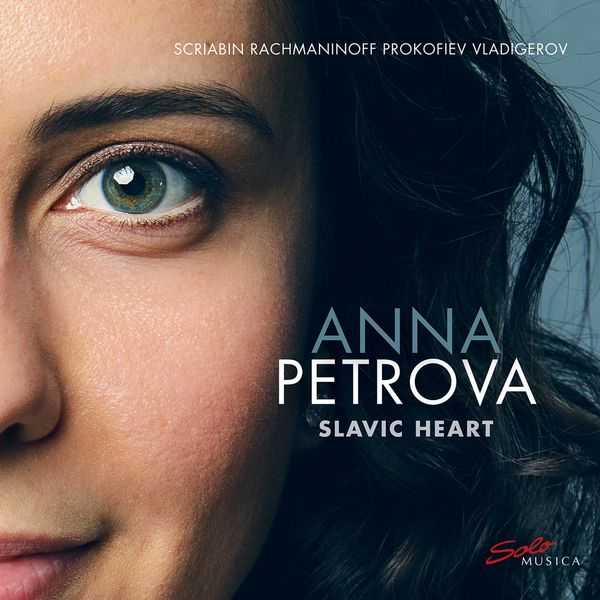

Composer: Sergey Prokofiev, Sergey Rachmaninov, Alexander Scriabin, Pantcho Vladigerov
Performer: Anna Petrova
Format: FLAC (tracks)
Label: Solo Musica
Catalogue: SM383
Release: 2022
Size: 0.99 GB
Recovery: +3%
Scan: yes
Scriabin: Piano Sonata No. 2 in G-Sharp Minor, Op. 19 “Sonata-Fantasy”
01. I. Andante
02. II. Presto
Rachmaninov: Variations on a theme of Corelli, Op. 42
03. Theme. Andante
04. Var.1, Poco piu mosso
05. Var.2, L’istesso tempo
06. Var.3, Tempo di minuetto
07. Var.4, Andante
08. Var.5, Allegro, ma non tanto
09. Var.6. L’istesso tempo
10. Var.7, Vivace
11. Var.8, Adagio misterioso
12. Var.9, Un poco piu mosso
13. Var.10, Allegro scherzando
14. Var.11, Allegro vivace
15. Var.12, L’istesso tempo
16. Var.13, Agitato
Prokofiev: Piano Sonata No. 6 in A Major, Op. 82
26. I. Allegro moderato
27. II. Allegretto
28. III. Tempo di valzer, lentissimo
29. IV. Vivace
Vladigerov: Aquarelles for Piano, Op. 37
30. No.6, Rhythmic Movement
In her New York orchestral debut with conductor Philippe Entremont, Anna Petrova was praised for her “ultra-smooth playing style” [New York Fine Arts Examiner]. She is an assistant professor of piano at the University of Louisville, KY, holds a PhD in musicology from the Manhattan School of Music, and performs frequently as a soloist and chamber musician.
The album presents the music of four composers: Sergei Rachmaninoff, Sergei Prokofiev, Alexander Scriabin, and Pancho Vladigerov. Three Russians and one Bulgarian, the music of whom spans a total of 50 years, from 1892 to 1942. “The heart is an ancestral metaphor… For example, it has been sometimes thought as the secret seat of courage or of intelligence; or as a hiding place for emotions; or as a breakable, fragile and precious object that we treasure; as a place from which sincere feelings emanate; as the locus of romantic desire; as the deep, summarizing content of a person… Also, in many languages, the word “heart” comes from either the Latin root cor/cordis, or from the Greek root kardia. That is, Spanish (corazon), French (coeur), and Italian (cuore), to give an example, take the Latin root, while German (Herz) and English (heart) take the Greek one (kardia). But what is most important for my present purposes here, and what these two roots share amongst each other, is their connection to the Indo-European root kr, which has the original sense of “vibrating.” Indeed, the two consonants sound like that when pronounced together, like a gentle vibration. Krrr…. In this very sense, too, a heart is a vibrating object, a vibrating, secret, treasured place – just like I wanted the piano and my playing of it to be in this album – a dear object that secretly vibrates with the sounds of my music”. (Anna Petrova)



